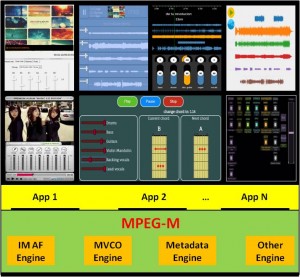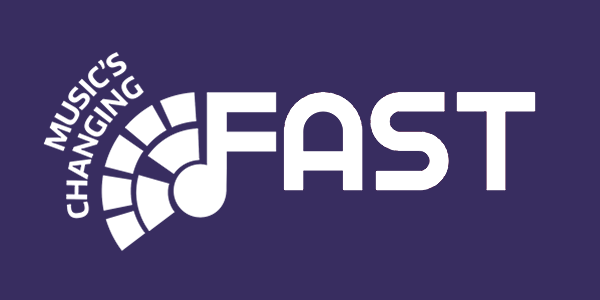by Panos Kudumakis, Centre for Digital Music, Queen Mary University of London
 The US Digital Millennium Copyright Act & the EU Electronic Commerce Directive aimed to revive the music industry; however, they are currently under revision, with respect to: a) what changes are needed to guarantee fair and increased revenues returned to artists and rights holders; and, b) how these changes would result in improved standards for multi-territory licensing, timely payments, and overall more transparency.
The US Digital Millennium Copyright Act & the EU Electronic Commerce Directive aimed to revive the music industry; however, they are currently under revision, with respect to: a) what changes are needed to guarantee fair and increased revenues returned to artists and rights holders; and, b) how these changes would result in improved standards for multi-territory licensing, timely payments, and overall more transparency.
In meantime, several key artists and musicians have turned their hopes for resolving these issues to technology and in particular, towards blockchain. Blockchain emerged in 2008 as the technology that underpins bitcoin. It operates as a shared ledger, which continuously records transactions or information. Its database structure, where there is a timestamp on each entry and information linking it to previous blocks, makes it not only transparent, but exceptionally difficult to tamper with.
Initiatives investigating blockchain have been launched on both sides of the Atlantic. In the USA, Open Music Initiative (OMI) has been launched by Berklee Institute for Creative Entrepreneurship, harnessing the MIT Media Lab’s expertise in decentralized platforms, whose mission is: to promote and advance the development of open source standards and innovation related to music, and to help assure proper compensation for all creators, performers and rights holders of music. It is worth to mention that OMI focus, wisely, set on a) new works rather than the vast legacy music catalogue, with the aim, that the same principles can be applied to the legacy music, retrospectively; and, b) on achieving interoperability among infrastructures, databases and systems so to be accessed, shared and exchanged by all stakeholders.
In Europe, one of blockchain’s evangelists is the Grammy Award-winning UK singer, songwriter and producer Imogen Heap. She has launched a blockchain project, Mycelia. Although still in its foundational stages, she intends it to be an entire eco-system that utilises blockchain as a way to enact a complete shake up in the music industry. Mycelia’s mission is to: a) empower a fair, sustainable and vibrant music industry ecosystem involving all online music interaction services; b) unlock the huge potential for creators and their music related metadata so an entirely new commercial marketplace may flourish; c) ensure all involved are paid and acknowledged fully; d) set commercial, ethical and technical standards in order to exponentially increase innovation for the music services of the future; and, e) connect the dots with all those involved in this shift from our current outdated music industry models, exploring new technological solutions to enliven and positively impact the music ecosystem.
However, blockchain is not quite ready yet and that is its dirty secret. Much as the enthusiasm is growing, it is likely to be several years before we see blockchain rolled out in a wide-scale, mainstream capacity.
In this section a brief overview of the components needed for a fair trade music ecosystem, beyond blockchain, are described. MixRights: Fair Trade Music Ecosystem recently presented at Interactive Music Hack-Fest in London, 11 June 2016, Sonar+D in Barcelona, 16-18 June 2016 and Mycelia Weekend in London, 8-10 July 2016. It features the following components and it is a mature test-bed for blockchain integration and experimentation.
- Identification is a fundamental component of any music trade system. A song identifier can be random so long as it can also be discovered by alternate IDs such as ISRC and/or ISWC. MPEG-21 Digital Item Identification provides a simple and extensible way for facilitating alternate IDs through the elements: a) Identifier; and, b) RelatedIdentifier;
- IM AF/ISO BMFF/STEMS/HTML5 editor/player for collaborative music creation & remixing, karaoke & chords, tagging & sharing in social nets & counting …. music citations!;
- MVCO Extensions on Time-Segments and Multi-Track Audio has reached the stage of PDAM at 115th MPEG Meeting, Geneva (CH), 30 May – 3 June 2016. It facilitates transparent IP rights management even when content reuse is involved with respect to permissions, obligations and prohibitions. It enables music navigation based on IP rights and … co-author graphs!;
- DASH streaming of IM AF is further enabling radio producers and DJs to schedule playlists for streaming to their radio stations and clubs, respectively, and perform live mixing for their audience. Thanks to MVCO artists could be paid straightaway, while they could even be notified when their tracks are scheduled for streaming, thus, enabling artists/fans interaction;
- Monetisation via Express Play and/or blockchain.
For further info please visit MPEG Developments.


